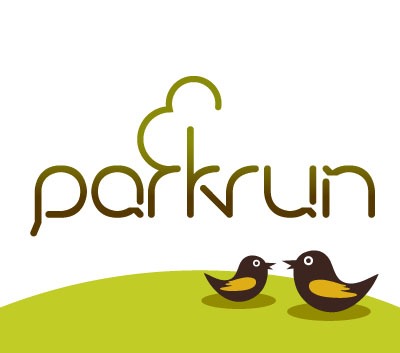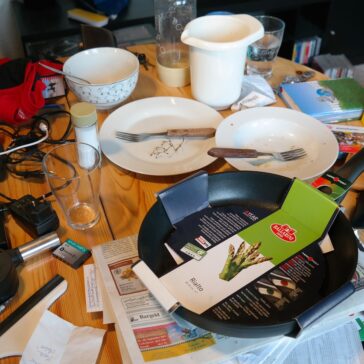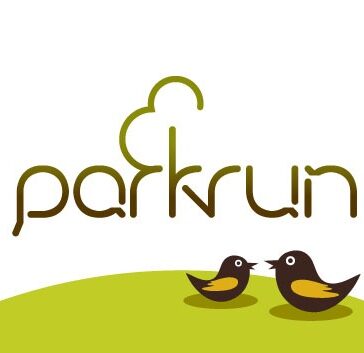
This post can be for anyone that wants to get a faster time at parkrun, whether it’s sub 20, sub 30 or anything else.
For any readers that don’t know, parkrun is a free-to-entry, organised and timed 5km run that happens every Saturday morning in parks around the UK and other countries around the world. It’s incredibly popular and helped thousands of people become runners, improved their fitness, and find community.
I’m not a running coach and I’m just passing on my experiences and what has worked for me.
I’ve put the points below in the order that I think will have the most impact on improving your time.
1. Start closer to the front
This is number one on the list and can have a huge impact on achieving a faster time and plays into other points below. Firstly, the parkrun clock starts when the “gun” fires, not when you cross the start line. Starting too far back takes you longer to cross the line and is lost time.
Secondly, in being closer to the front, there are fewer people in your way to dodge and get around and those around you are faster. See the later point.
To overcome the common mentality of standing back, being polite and not wanting to get in the way of others and downplaying what we can achieve, is to gather some courage and START CLOSER TO THE FRONT. You may feel uncomfortable and like an imposter, but you don’t know these people. Don’t care what they think. It’s not like they will be telling stories for years to come about how one week, someone once started a parkrun too far up the starting field and was then a bit slow! I would suggest always going a few more steps/rows forward than you think you should and are comfortable with. If you want to go sub 20 mins, you need to be at the very front or one row from the front. If you are aiming for around 22 mins (depending on the number of runners) be in the first 20-50 runners. Sub 30 – start in the middle and NOT at the back.
2. Run hard from the start
This is generally a tactic for any “race” I enter, and it can have dramatically good and dramatically terrible outcomes. 5km is a tough distance. It can be run hard, but it’s long enough that if you get it wrong, it can pull your shorts down and spank your ass.
Personally, I feel I’m able to gain time at the start of a race when fresher, than towards the end when I’m tired. There is a balancing act here. Go too hard, or too hard for too long and you’ll crash before the finish. I would say, go hard for a couple of hundred metres at a pace that feels significantly fast but is not going to ruin you. After that, back off the pace, settle in and pay attention to the next point.
3. Use other runners around you
Starting closer to the front and going out hard will have put you in a bit of space, high up the field and with quick or quicker runners around you. Use these runners to pace yourself. Sometimes it can feel as if just putting one foot in front of the other and staying upright is all you can think about, so tag onto someone and let them pace you. If they’re going too fast, let them go. Someone else will be along and then try and stay with them.
If you try and run your own race and do not use runners around you for pacing, it’s very possible you will end up running slower than you really can. It could be uncomfortable but try to hold on.
The points up to now could get you into a situation where there may be a lot of faster runners coming around you. Don’t worry or care what people think. They are most likely thinking – “Why did I not start closer to the front?” After a kilometre or so, the field will even itself out and you will be with runners of a similar pace. This takes us to the next point.
4. Finishing position is not important
What we are talking about today is finishing time, NOT finishing position. There can be a tendency to race the people in your near vicinity, and yes, I know this is counter to Point 3. Sometimes it can be helpful to push you on, but it can also tear your race to shreds. If you were to finish 23rd instead of 22nd, would it really make or break your parkrun? You’ll quickly forget your finishing place, it’s the time you are chasing and that’s what you’ll remember. If someone is chasing you down in the middle kilometres and you’re hanging on by the skin of your teeth, don’t try and stay in front of them. Just let them pass. If you can use them for a little bit of pacing once they pass, then all the better.
5. Warm-up
Again, imposter syndrome can get in the way of warming up. You think “I’m not a real runner. What if people see me warming up and I’m a little bit rubbish”. Again, you need to get over yourself, warm up and not care about what people think. A Formula 1 car race doesn’t start with cold engines and cold tyres, and running is just the same. Every boot camp session I currently do, During the warm-up, I think “How the hell am I going to be able to do the session, I’m shattered already”. Then come the start of the session proper, my body is purring, I’m ready to go and feel great. You need to get 10 minutes of warm-up or running in before the start. Your legs should be warmed up and your heart rate should be elevated for those 10 mins. If this means forgoing the pre-race briefing, then so be it.
6. Mental preparation
If you tell yourself that you’re not going to achieve your goal time, then there is a good chance that you will. Being a regular runner is a very important part of running a “good” time, but telling yourself you can and intend to have a good go at achieving your goal time is also important. You must be mentally prepared, just like warming up is being physically prepared. A chuck of achieving a goal is in your head, so tell yourself you can.
7. Don’t get too up or down
If you hit your time. Fantastic. Was there anything that you could improve on? Maybe get closer to the start line! Can you come back another time after you’ve bathed in the glory of a new PB and do it again? Just because you have done it once, don’t let it slip and go and munch a box of croissants. Can a new goal and the habits that go with it be set and continued?
If you miss your time. There’s always next week or the week after. Sometimes it’s just not your day. There can be many reasons for a lacklustre performance – poor night’s sleep, a few too many the night before, picking up an injury, going out too hard. Don’t get too down about it. Just come back better prepared. It may take several attempts to hit your time.
8. Don’t gun it every week
If you are a regular parkrun, it doesn’t mean you have to go all guns blazing for a PB every week. You’ll probably miss more than you hit and very likely get discouraged. Run some weeks at a comfortable speed as a bit of training. Run to and from parkrun to get a longer run in. When you are feeling good, get prepped and have another go at a PB.
9. Experiment
Following on from Point 8. On one of your “easier” parkruns, try a few things out. Where is the best starting point? Should you get to the start line earlier? Are there bottlenecks in the course you should get to before the pack? Is there a particular km you could work on? Does running 5 similar km splits help you? Should you run on feel? Are there pacers? Can you use them?
10. Remember – being able to run 5km is a fantastic thing
Taking part in parkrun and being able to run 5km is a fantastic thing to be able to do both for your physical and mental health. There is only a small percentage of people who can do it. That PB or goal time may never come, but take heart that you chose to become a runner, you got out of the door and get to take part in this wonderful event every week.




